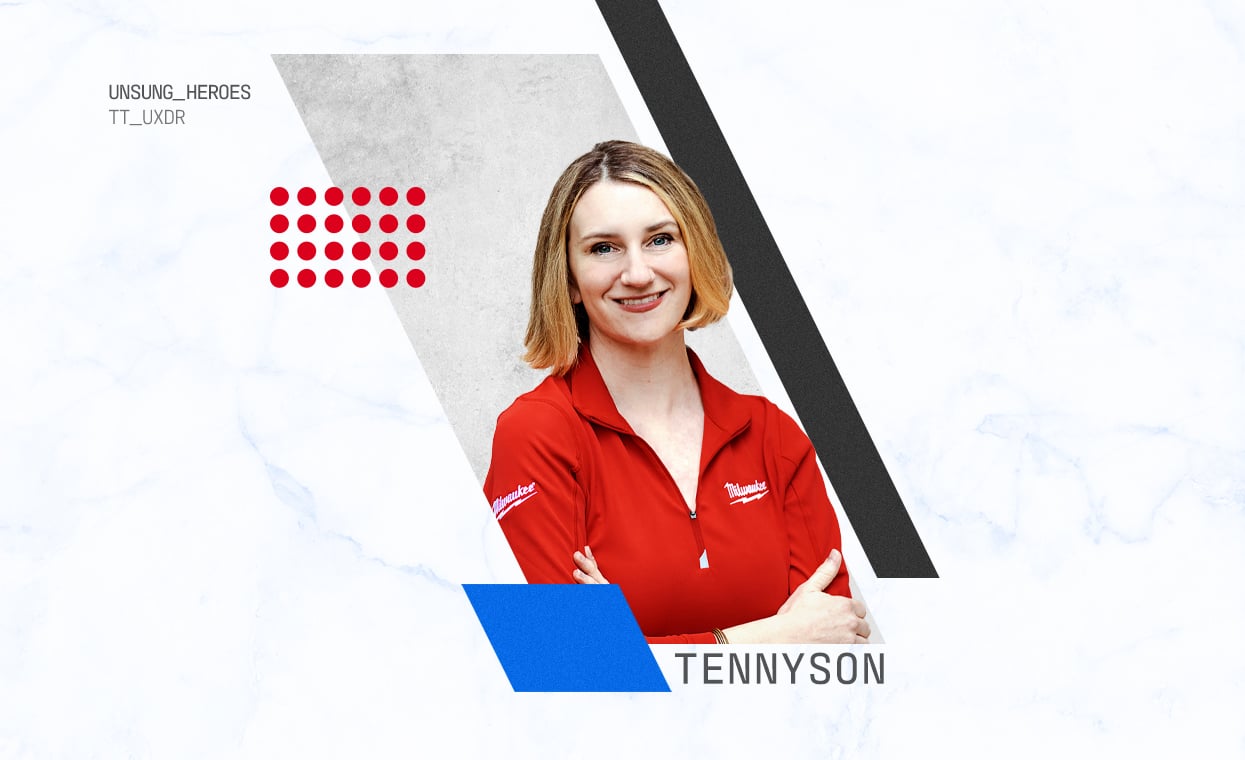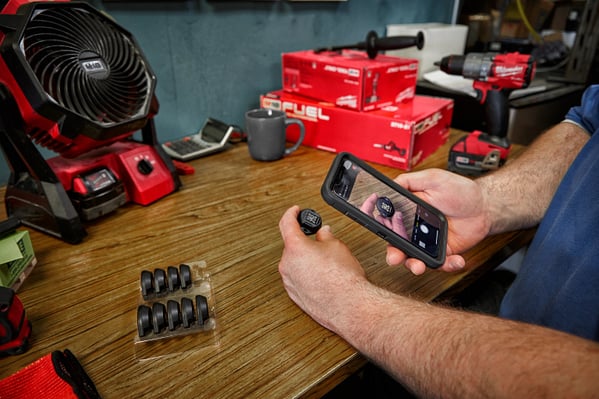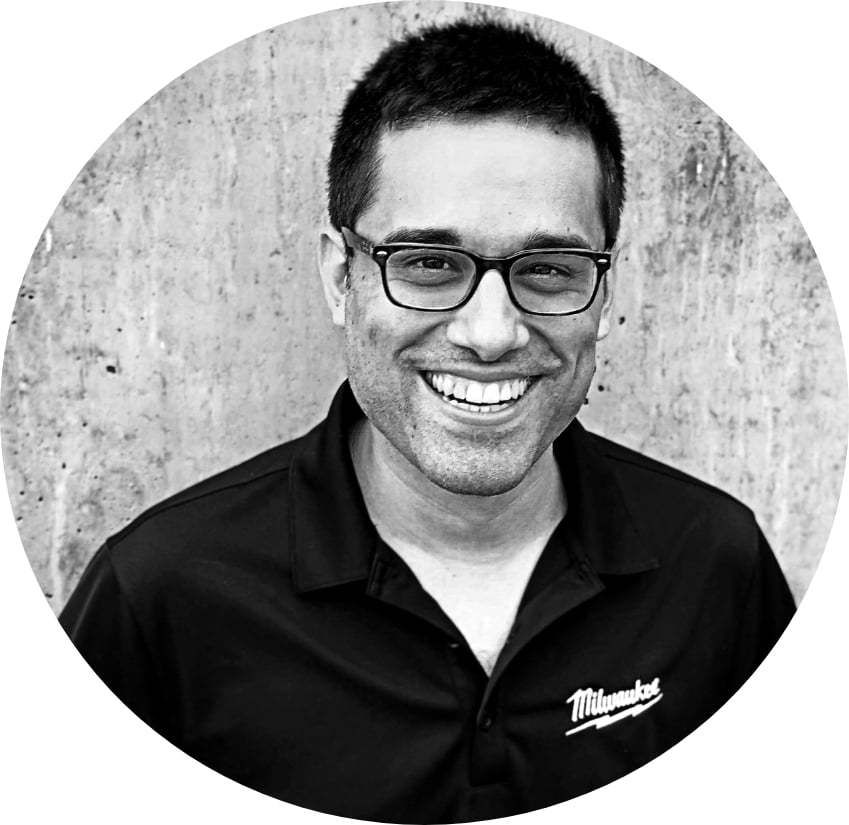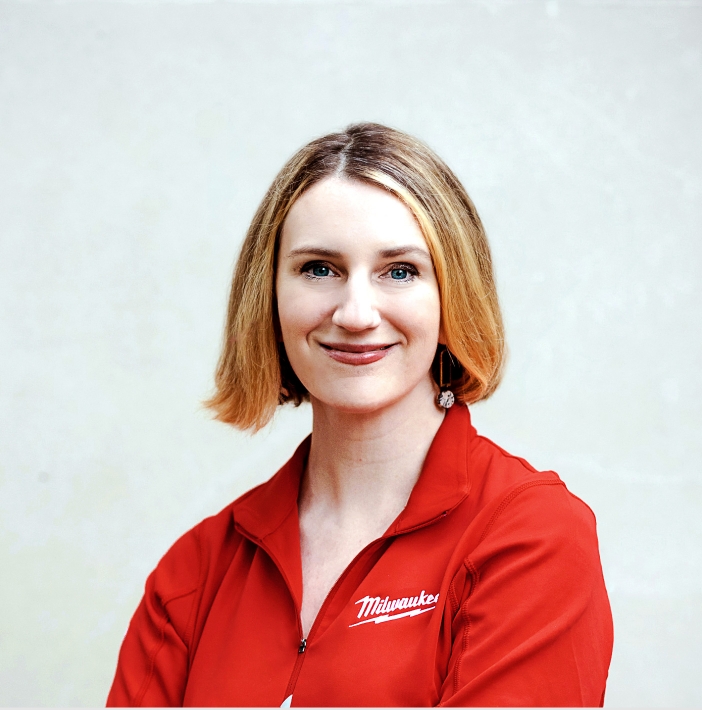
Last month, we started a new employee spotlight series—kicking off with our beloved ONE-KEY™ support representative, Corey—a new series where we shed light on the hardworking people who make the One-Key app possible.
This week’s article serves as our next installment of this series, and we couldn’t be happier with whom we’ve chosen to spotlight!
The fields of app and software development rely on multidisciplinary teams working in tandem. Together, these teams ensure they can not only build the proverbial airplane, but also, that they can provide assurances to key stakeholders that the airplane they’ve constructed is structurally sound and can fly (and safely land); taking the metaphor one step further, it’s also crucial the team can fill the airplane with enough passengers to make the incredible airborne journey fiscally feasible, time and time again.
Developing the One-Key app requires a similar group from diverse areas of expertise. There are of course the software engineers who have the technical knowhow to build app features from the ground up, and the product managers who lead the product vision and oversee these technical teams ensuring functionality ends up in your hands.
However, an even more critical role is one that ensures the vision we have for our app and the functionality we develop connects back to our users’ needs.
Enter: the user experience practitioner, tasked with engaging end users, running beta tests, conducting user interviews, surveying our users for feedback, and more.
I had the privilege of sitting down with one such practitioner. Tennyson Tippy, a Senior User Experience Researcher on the One-Key team, leads research initiatives for the One-Key app. She seeks genuine answers from real end users to sensitive questions like, “What’s the most frustrating part about your day?” Through the research Tennyson conducts, our engineers make incremental improvements that help improve end users’ interactions with our app.
What Is User Experience (UX) Research?
User experience, as the term suggests, is a methodology used by practitioners, researchers, and product designers which puts the user of a product they’re building at the center of development prioritization.

User experience research is the critical, user-participatory study and observation of how end users interact with a product or service. User experience research seeks to uncover and fully understand users’ needs, desires, as well as the unique challenges they encounter while using a product; these findings are critically studied and applied to future iterations of the product, ensuring its features better align with the needs and goals of its target user, ultimately improving outcomes for those who interact with it.
Qualtrics notes, you may think of UX as a subdiscipline of customer experience (aka ‘CX’). And while CX focuses on “a wholistic view of your brand” as it’s perceived in the eyes of the customer as they’re “completing tasks and using interactive platforms and services,” UX is “more focused on utility and useability—the hands-on side of things.”
Why Is User Experience Important?
Professional builders certainly want to ensure the occupants of the buildings they construct are satisfied that their precise specifications are met, and that building inspectors can sign off. We’ve previously discussed the importance of building trust and improving the customer experience to this effect.
However, the same principles that builders use when creating structures in the physical world can be applied to digital products, where the gap between what developers build and end users expect is often fuzzier. What better example of this exists than Mike Judge’s Silicon Valley? This show tells the story of a small California startup trying to find their way building a product that’s both professionally gratifying and which users will find valuable.
In the critical moment where the product is ready to be put in the hands of end users, however, its developers come to a stark realization: They’ve only requested the feedback of engineers, not the people they actually anticipate using the product. The result is a focus group of prospective users providing honest feedback critical of the product that miserably fails to meet their expectations of a usable product.
User Experience (UX) Designer vs UX Researcher
Oftentimes when discussing User Experience (UX), the job titles “Designer” and “Researcher” are uttered in the same breath with little time spent distinguishing between the two, often leading to confusion and the common question arising, “What’s the difference between a User Experience Designer and Researcher?”
When distinguishing UX designers from UX researchers, there are a couple of key things to keep in mind, though there is of course some overlap to the positions as well.
A user experience researcher may discover that a town needs a bridge, realizing all the activities, efficiencies, and positive impact a bridge could have on townspeople. A UX designer, on the other hand, may serve as the architect, responsible to take the town’s plans and execute those plans, ensuring the bridge works well for everyone using it.
- UX researchers are focused on exploring and, critically, ensuring they’re building the right thing. As Senior UX Researcher Tennyson Tippy notes, you might think of a UX Researcher more like you would an investigative journalist who digs deeper to find what’s at the root of a phenomenon or behavioral problem. UX researchers conduct extensive discovery research and map their findings to the highest value, the interactions that would provide users the most value. These findings are then shared with stakeholders to ensure key user needs are incorporated in future iterations of the product.
- UX designers are focused on building the final product. You might think of a UX designer similar to an architect or builders. They’re often tasked with executing on a vision provided by Product Managers, who decide what gets built; they also work with UX researchers to execute on features that align with end user needs. However, it’s also worth noting that UX designers are also oftentimes responsible for doing their own research, chiefly usability testing. Designers are responsible for their own designs and will often run usability tests. The UX designer of a website, for example, may use a tool like UserTesting.com to solicit online participants to compare multiple versions of a website and iron out what’s working and what needs to be improved before making the website available to the public.
An Interview with Tennyson Tippy – Sr UX Design Researcher for One-Key
I had the privilege of sitting down with Tennyson and asking her some questions about her role, what her day-to-day responsibilities look like, as well as what she's like as a person outside of the office.
LM:
How would you explain UX research and your role to an end user?
TT:
When we ask to engage end users, it’s important that we’re sensitive to their personal experiences and any frustrations they’re experiencing.
We spend time with end users to understand what it’s like to be in their shoes.
We’ll tell them, for example, “We want to understand what it’s like to be you, what’s frustrating, what’s hard about your day?”
We want to make sure they know their opinion is important to us, and that the research we conduct is used to improve app and their experience using it.
LM:
Can you explain what your specific role/team as a UX researcher is responsible for within the One-Key org?
TT:
I’m a Senior UX Design Researcher, and I’m responsible for partnering with product managers (PMs).
PMs are ultimately responsible for what we build, what gets made in app. I partner with PMs to understand our users, conduct competitive analyses, and ultimately uncover opportunities.
Right now, I work with a few different PMs – our small UX research team helps uncover insights that can help us make better decisions when building features in the app and improving existing functionality.
LM:
As a follow-up, what are some of the other UX research initiatives within One-Key? Is there a UX research org chart?
TT:
One thing I’m working on is building a research repository. We receive lots of feedback and want to make sure we’re leveraging it in the best ways possible. Research data includes things like user interview notes, survey results, net promoter scores (NPS), which is a type of survey that asks respondents to rate the likelihood of whether they’d recommend our app to someone else. There’s also app review data from the Apple App Store and the Google Play Store. We are working on housing this data in a central, secure location, and making it indexable, taggable, and searchable. In the future, we want to make sure that our folks (like product managers and internal stakeholders) easily search something like “concrete” and pull everything relevant to that term that’s surfaced in our research.
This is important because we want to make sure we’ve covered all the feedback about a certain idea or topic before we go and explore fresh research opportunities. The research repository will help us keep track of what we already learned or have available.
LM:
UX is an emerging field, and its practitioners come from many diverse backgrounds. Would you mind sharing how you came to the field and what your UX journey has been?
TT:
I transitioned into UX design from a print design background. I started my career designing wallpaper and textiles and had a neighbor who worked in UX design. I asked him a million questions, which cracked open door and my interest in UX design.
I was hooked. I went to grad school for UX research. While there, and I got connected with design leaders who helped me shape my early career. I went on to work doing UX research for agencies.
LM:
What are some of the challenges you face as a UX researcher and how do you overcome them?
TT:
There is so much opportunity, so many interesting people to talk to, so many challenges to solve… it’s hard not to chase after all of them.
Additionally, we have end users all over the world, which makes it challenging to meet them on their turf.
We’ve been able to leverage digital tools, which have made facilitating remote interviews possible, and though it’s not quite same as being in person, some of these techniques have worked for us.
LM:
Here’s a multi-parter: What is your favorite part about the following:
- The UX field,
- Your gig at Milwaukee Tool
TT:
In some ways, I love that User Experience is a field at all! It’s a relatively new discipline, but the fact that there is a profession that is centered around how we can deliver the best experience and meet the needs of individual people is incredible.
Before UX, it was often engineers making the decisions based on what they thought was best for users.
Now there’s a subdiscipline focused on how we can understand our users the best. There are more conferences, more software products to help practitioners be better at their jobs and help them do high quality analysis.
As to my job at Milwaukee Tool, I love the opportunity of and the mission of Milwaukee Tool. Part of the reason I’m here is that I feel empowered through this position to help make construction and building more efficient. Construction plays a huge role in the world we live in. We get to build systems that help make it more productive.
Contractors, tradespeople, and construction workers who use our tools are real people with real problems. I live in a working class neighborhood, where I see tradespeople and see the challenges they face on a daily basis. These are the people who are responsible for building our. We have the opportunity to build the tools that help them be more productive and help make their day a little bit easier and safer.
LM:
Tell me about Tennyson the person: What makes you tick?
Any interests, passions?
TT:
I live in Philly, and I’m a Philly sports fan. Go Sixers!
I’m also passionate about public parks, community gardens, local social infrastructure like libraries. I volunteer my time and talents to help make some of these community organizations stronger and the work they do more visible.
LM:
Favorite music, movies?
TT:
Shoutout to, War on Drugs, a Philly-based band!
LM:
If you weren’t a UX researcher, what would you be (if you could be anything, no matter how probable or improbable)?
TT:
I would love to still be doing this, but I would love to do it in a capacity where my work has a broader and maybe more disruptive influence. A researcher for PEW or an investigative journalist for REVEAL.
LM:
If you could tell an end user one thing about One-Key, what would you tell them?
TT:
One-Key is a great tool for your business, helping drive efficiencies, even if you’re a business (of 1). It can help you keep track of receipts, serial numbers, how much you paid for something. There’s a lot of value in this tool for helping you be more productive in operating a business.






